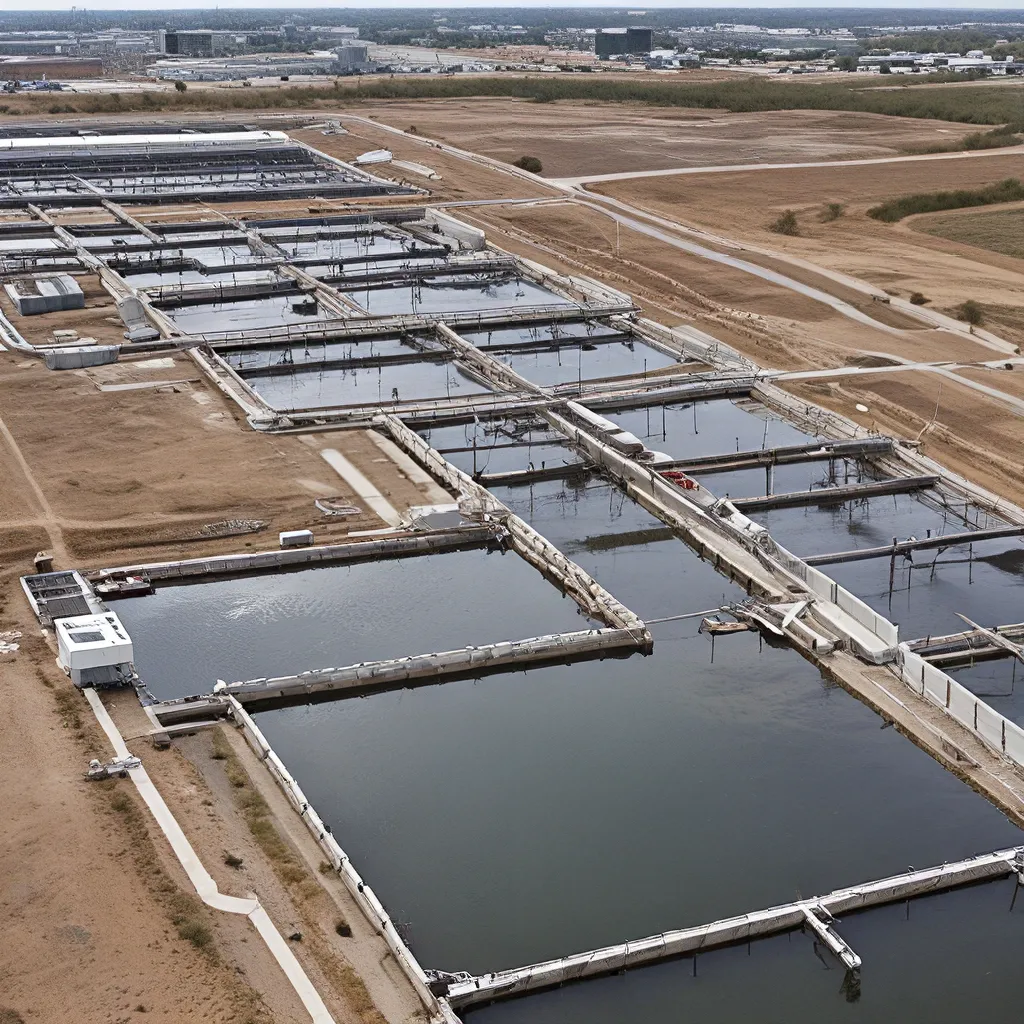
In the ever-evolving landscape of sustainable wastewater management, electrochemical processes have emerged as a promising frontier, offering innovative solutions to address the complex challenges we face. As someone deeply passionate about environmental preservation, I’ve been captivated by the transformative potential of these cutting-edge technologies.
Understanding the Electrochemical Approach
Imagine a world where we could harness the power of electricity to purify and recycle our precious water resources – that’s precisely what electrochemical processes aim to achieve. At their core, these methods leverage the principles of electrochemistry to drive a range of reactions that can effectively remove contaminants, oxidize organic matter, and even recover valuable resources from wastewater.
Emerging research has demonstrated the versatility of electrochemical advanced oxidation processes (EAOPs), which can target a wide array of pollutants, from synthetic dyes and pesticides to pharmaceutical residues and persistent organic compounds. By generating powerful oxidizing agents, such as hydroxyl radicals and peroxides, these systems can break down even the most recalcitrant substances, transforming them into more benign or even reusable byproducts.
Moreover, the electrochemical approach offers the potential for energy-efficient and environmentally friendly wastewater treatment. Unlike traditional methods that rely on energy-intensive physical or chemical processes, electrochemical systems can often operate at ambient conditions, minimizing the carbon footprint and resource consumption associated with wastewater management.
Exploring the Versatility of Electrochemical Processes
One of the remarkable aspects of electrochemical processes is their versatility, allowing them to be tailored to address a diverse range of wastewater treatment challenges. Let me share a few examples that have caught my attention:
Treating Complex Wastewater Streams
Imagine a food processing plant, where the wastewater stream is laden with a complex cocktail of organic compounds, heavy metals, and even pathogenic microorganisms. Conventional treatment methods may struggle to effectively handle such a diverse array of contaminants. Electrochemical processes, however, have shown their prowess in tackling these intricate wastewater challenges.
Recent research has explored the use of electrochemical systems to remove organic matter, heavy metals, and even disinfect the wastewater, all within a single, integrated treatment framework. By carefully selecting the electrode materials and optimizing the operating conditions, these systems can selectively target and eliminate the various pollutants, paving the way for the safe reuse or discharge of the treated water.
Targeting Emerging Contaminants
As our understanding of water quality evolves, we’ve become increasingly aware of the presence of emerging contaminants – substances like pharmaceutical residues, personal care products, and microplastics – that traditional treatment methods often fail to adequately remove. Here, electrochemical processes shine, offering a promising solution to this pressing challenge.
Emerging studies have explored the use of hybrid electrochemical systems, combining advanced oxidation processes with other technologies, such as reactive membranes or permonosulfate-based oxidation, to tackle these persistent and potentially harmful contaminants. By leveraging the synergistic effects of these combined approaches, researchers have demonstrated remarkable success in removing a wide range of emerging pollutants from wastewater streams.
Resource Recovery and Circular Economy
In the quest for a more sustainable future, the circular economy has become a guiding principle, where waste is viewed as a valuable resource rather than a liability. Electrochemical processes have the potential to play a pivotal role in this transformation, enabling the recovery and reuse of valuable materials from wastewater.
Imagine a wastewater treatment plant that not only purifies the water but also extracts and recycles precious metals, nutrients, or even energy-rich compounds. Electrochemical techniques can facilitate these recovery processes, allowing for the capture and repurposing of these valuable resources, ultimately reducing the environmental impact and enhancing the overall sustainability of the wastewater treatment system.
Navigating the Challenges and Opportunities
As with any emerging technology, the journey of electrochemical processes in wastewater treatment is not without its challenges. Factors such as scalability, cost-effectiveness, and operational complexity must be carefully addressed to enable widespread adoption and long-term success.
Alpha Wastewater, a leading provider of innovative wastewater treatment solutions, has been at the forefront of exploring and overcoming these challenges. Through their extensive research and pilot-scale demonstrations, they have gained valuable insights into the practical implementation of electrochemical technologies, paving the way for their seamless integration into real-world wastewater treatment facilities.
Moreover, the scientific community continues to push the boundaries of electrochemical processes, exploring new electrode materials, reactor designs, and control strategies to enhance efficiency, reduce operational costs, and address emerging contaminants. Ongoing research and development in this field hold the promise of unlocking even greater potential for sustainable wastewater management.
As I delve deeper into the fascinating world of electrochemical wastewater treatment, I can’t help but feel a sense of excitement and optimism. The possibilities are truly limitless – from transforming complex industrial effluents into clean, reusable water to recovering valuable resources from our waste streams. It’s a testament to the ingenuity of the human spirit, driven by a steadfast commitment to environmental stewardship.
So, let’s continue to explore, innovate, and push the boundaries of what’s possible in the realm of wastewater treatment. Who knows what remarkable breakthroughs await us on this fascinating journey?